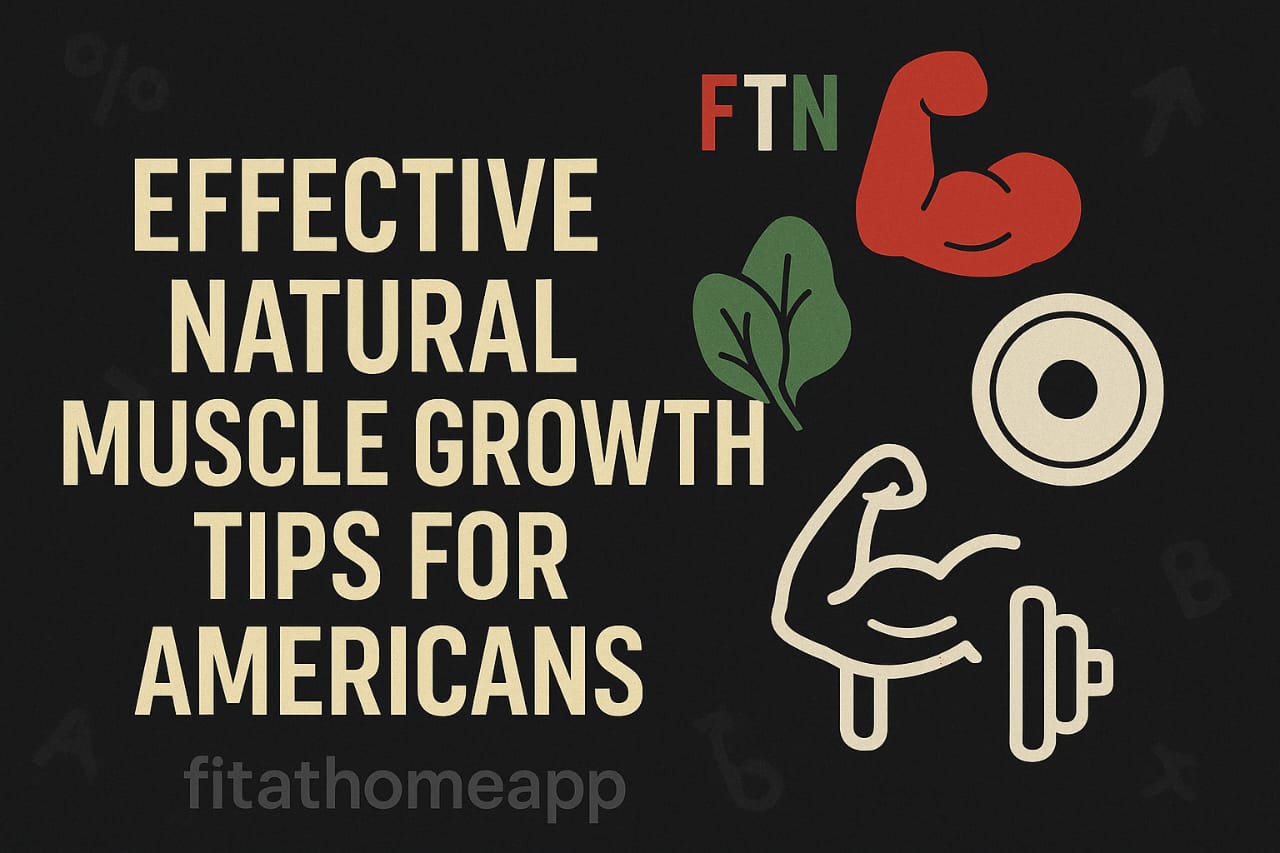In the pursuit of building muscle and enhancing physical performance, many individuals are tempted by the promise of rapid results offered by anabolic steroids. However, these substances carry serious health risks that often outweigh the short-term gains. Fortunately, there are safe and effective natural alternatives that can help you build muscle, improve strength, and boost overall health—without compromising your body or mind.
⚠️ Understanding the Dangers of Steroid Use
Anabolic steroids are synthetic versions of testosterone designed to accelerate muscle growth and physical performance. While they may deliver noticeable gains, the health consequences can be severe and long-lasting.
🧬 Hormonal Imbalances
Steroid use can disrupt the body’s natural hormone production, leading to:
Gynecomastia (male breast tissue development)
Infertility in both men and women
Shrunken testicles and lower natural testosterone levels
❤️ Cardiovascular Risks
Steroids are particularly harmful to the heart and blood vessels. Users may experience:
Elevated blood pressure
Negative changes in cholesterol levels
Increased risk of heart attacks and strokes, especially in younger users
🧠 Mental Health Side Effects
Steroids can drastically affect mood and behavior, often causing:
Aggression and irritability
Severe mood swings
Depression and increased risk of addiction
🧪 Liver Damage
Some steroids are toxic to the liver, leading to:
Elevated liver enzymes
Risk of liver disease or liver cancer
Even short-term use can stress the liver significantly.
Given these serious risks, more people—especially health-conscious Americans—are turning to natural, sustainable muscle-building methods that deliver results without endangering health.
🌱 Natural Supplements That Support Muscle Growth
Instead of relying on harmful steroids, consider natural supplements that have been scientifically proven to support muscle development, recovery, and performance.
🥤 1. Protein Powders
Protein is essential for muscle repair and growth. Common types include:
Whey: Fast-absorbing and ideal post-workout
Casein: Slow-digesting, great before bed
Plant-based: For vegans and those with dairy allergies
✅ Recommended dose: 20–30g post-workout or between meals
⚡ 2. Creatine Monohydrate
Creatine boosts energy production during intense exercise, leading to:
Increased strength and muscle mass
Enhanced performance and endurance
✅ Suggested intake: 3–5g daily, ideally after workouts
💪 3. BCAAs (Branched-Chain Amino Acids)
These three essential amino acids—leucine, isoleucine, and valine—help:
Promote recovery
Reduce muscle soreness
Preserve lean mass during calorie cuts
✅ Dosage: 5–10g before or during workouts
🔋 4. Natural Testosterone Boosters
Unlike synthetic steroids, natural boosters support your body’s own testosterone production:
Fenugreek extract
D-Aspartic acid
Ashwagandha
These ingredients can help improve strength, energy, and recovery—safely and legally.
🏋️♂️ Proven Workout Strategies for Natural Muscle Growth
Building muscle naturally takes commitment, strategy, and smart training—not shortcuts.
🏗️ Focus on Compound Movements
Exercises that engage multiple muscle groups include:
Squats
Deadlifts
Bench presses
Pull-ups
These movements stimulate the release of anabolic hormones and maximize muscle activation.
📅 Optimal Training Frequency
Aim for 3–5 strength training sessions per week, allowing time for muscle recovery and growth. Structure your routine with:
Push/pull/legs splits
Upper/lower body days
Full-body workouts
📈 Use Progressive Overload
Gradually increase the weight, reps, or intensity of your exercises to continuously challenge your muscles and promote growth.
🔄 Try Periodization
Break your training into cycles that vary in volume and intensity. For example:
4 weeks of heavy lifting
4 weeks of moderate reps
2 weeks of active recovery
This method prevents plateaus and supports long-term progress.
🔁 Cross-Training for Balance
Mix in other activities like:
Cardio (for heart health and endurance)
Yoga or mobility drills (to improve flexibility and reduce injury)
Cross-training enhances overall athletic performance and aids in recovery.
🥗 Nutrition & Lifestyle: The Foundation of Muscle Growth
No supplement or workout program will work without a solid foundation of nutrition, hydration, and healthy habits.
🥩 Macronutrient Balance
To support muscle growth:
30–35% protein: chicken, eggs, legumes, tofu
45–50% carbs: brown rice, sweet potatoes, oats
20–25% healthy fats: avocado, olive oil, nuts
🍽️ Tip: Spread protein intake across 4–6 meals to maximize muscle protein synthesis.
⏰ Meal Timing
Post-workout meal: Eat a high-protein meal within 30–60 minutes of finishing your workout
Before bed: A slow-digesting protein (like casein) supports recovery overnight
💧 Hydration
Muscles are 70% water. Hydration is vital for:
Nutrient transport
Joint lubrication
Energy and focus during workouts
✅ Aim for at least 8–10 glasses of water per day—more if you’re sweating heavily.
🛌 Sleep and Stress Management
Recovery happens while you sleep. Get:
7–9 hours of sleep per night
Daily stress relief through breathing exercises, stretching, or mindfulness
High cortisol levels (a stress hormone) can suppress muscle growth, so manage stress like a pro.
✅ Final Thoughts: You Don’t Need Steroids to Get Strong
Steroids may offer fast results, but they come at a cost—your long-term health. The good news? Natural methods can help you build impressive muscle, improve performance, and feel better—without dangerous side effects.
By focusing on:
Smart training strategies
Clean nutrition
Proven natural supplements
Healthy recovery habits
…you can unlock your full physical potential safely and sustainably.
💬 Strong bodies are built with discipline, not shortcuts.
– Trusted by fitness professionals worldwide
🎥 Want to see evidence-backed expectations for natural muscle gains? Watch this
🎥 My Personal Insight – “How Much Muscle Can You Gain Without Steroids?”
This video delivers a clear, honest breakdown of what natural lifters can realistically expect in terms of muscle gains—without risking health or integrity. It reinforces a core message of the article: lasting strength comes from discipline, not shortcuts.
I appreciate how the video demystifies natural progress without competing with unrealistic expectations or promotional hype. To enhance its educational value, including a visual example of training logs or progress tracking over several weeks would help viewers better understand the journey

